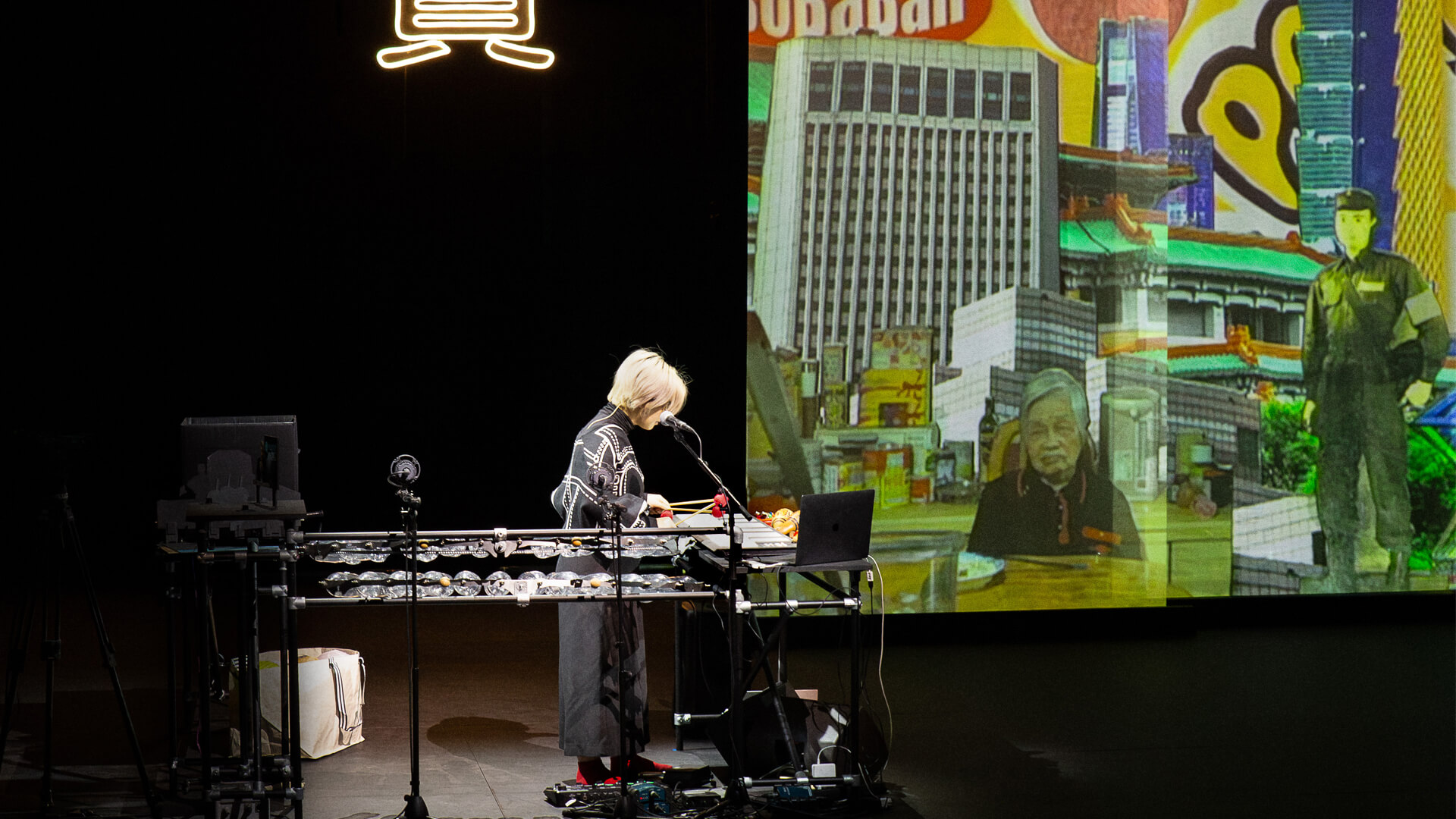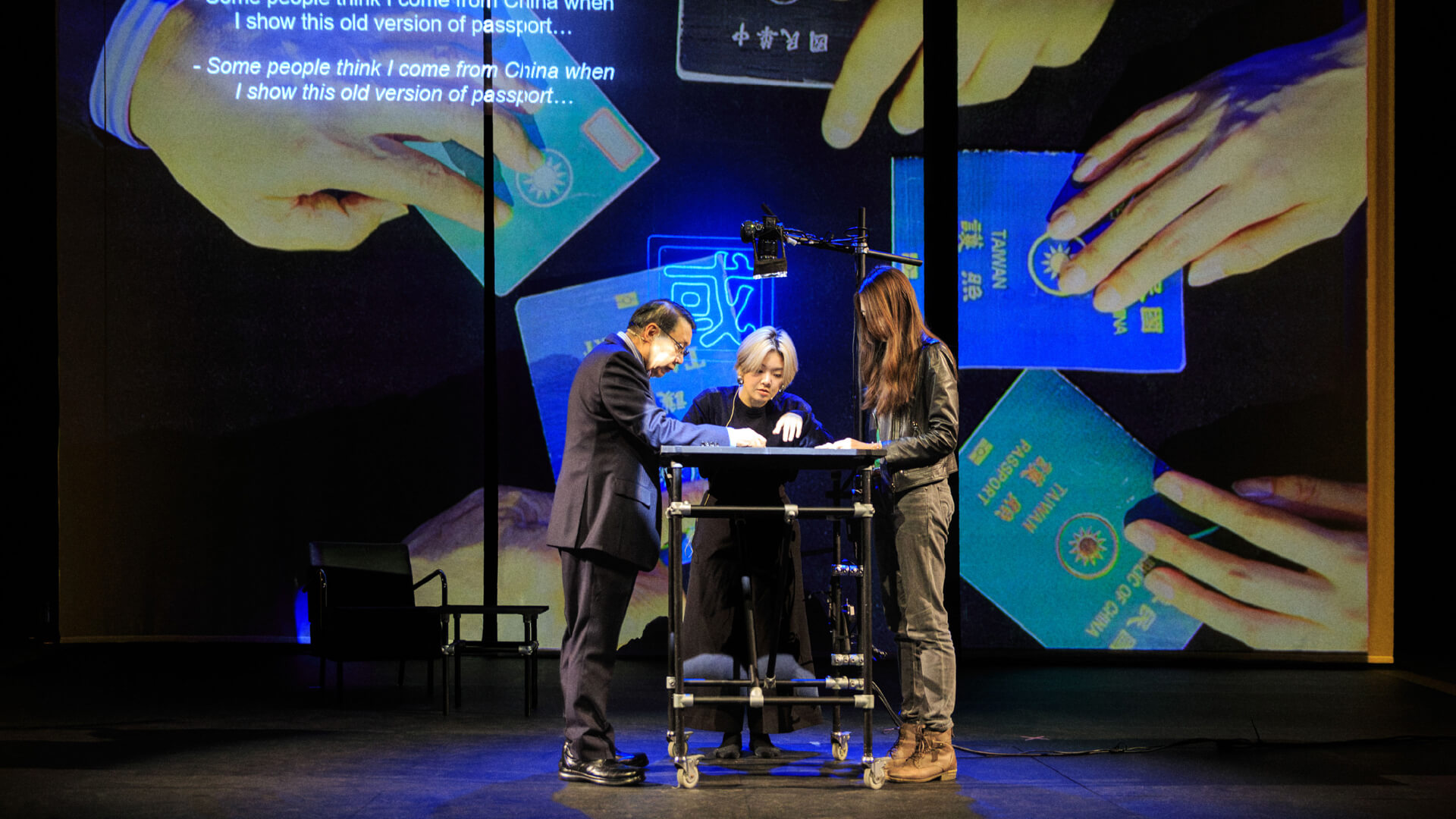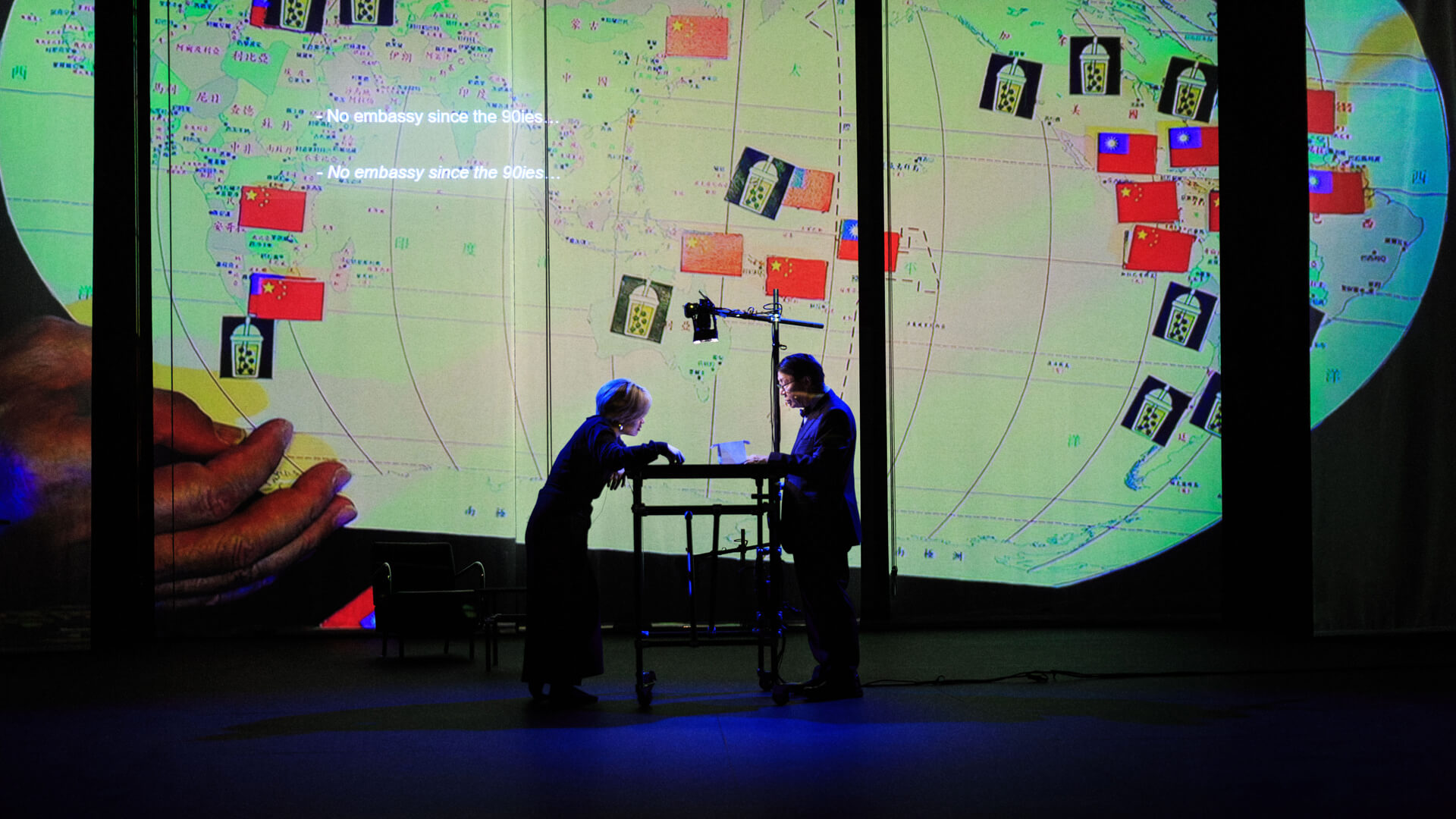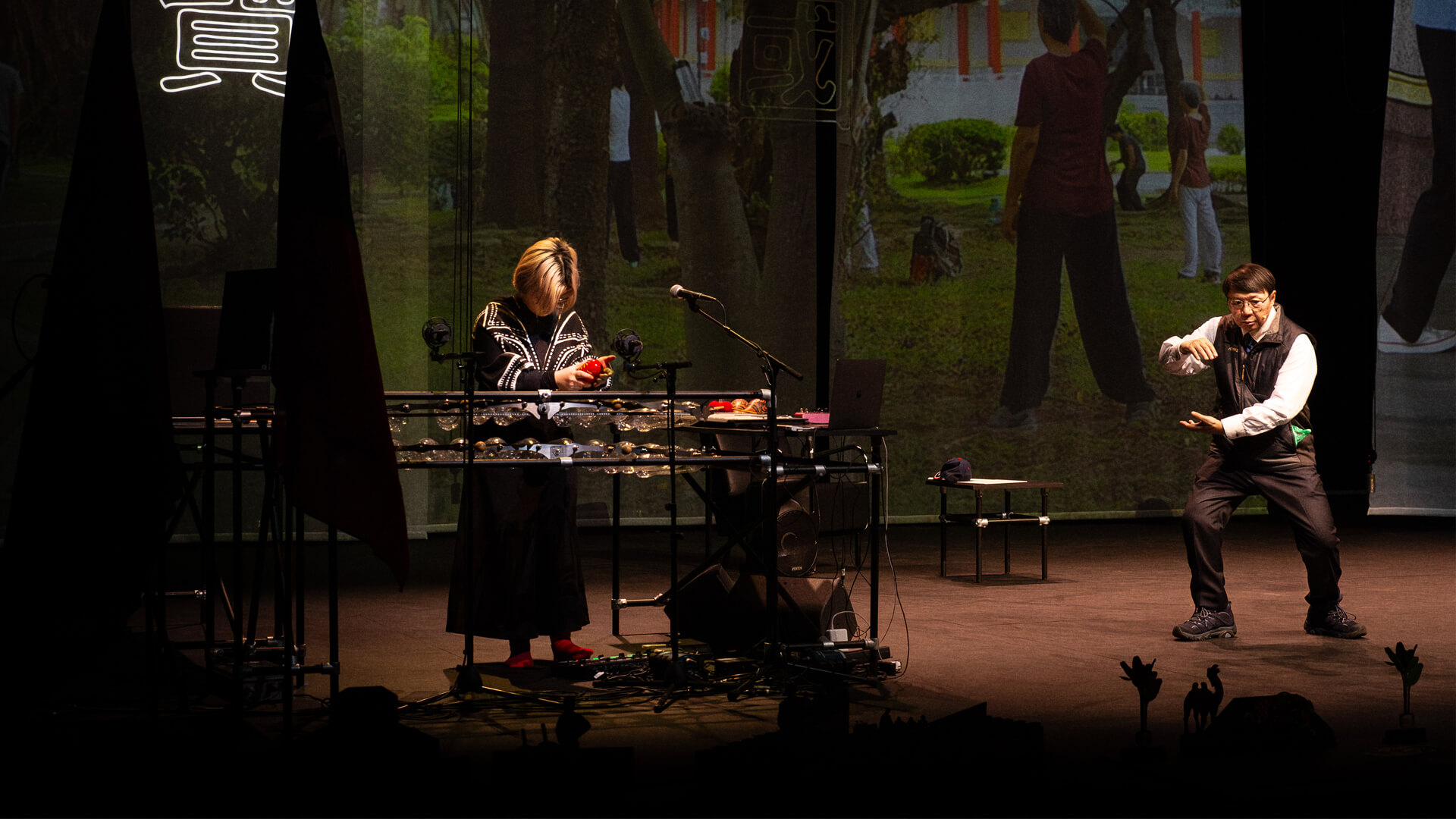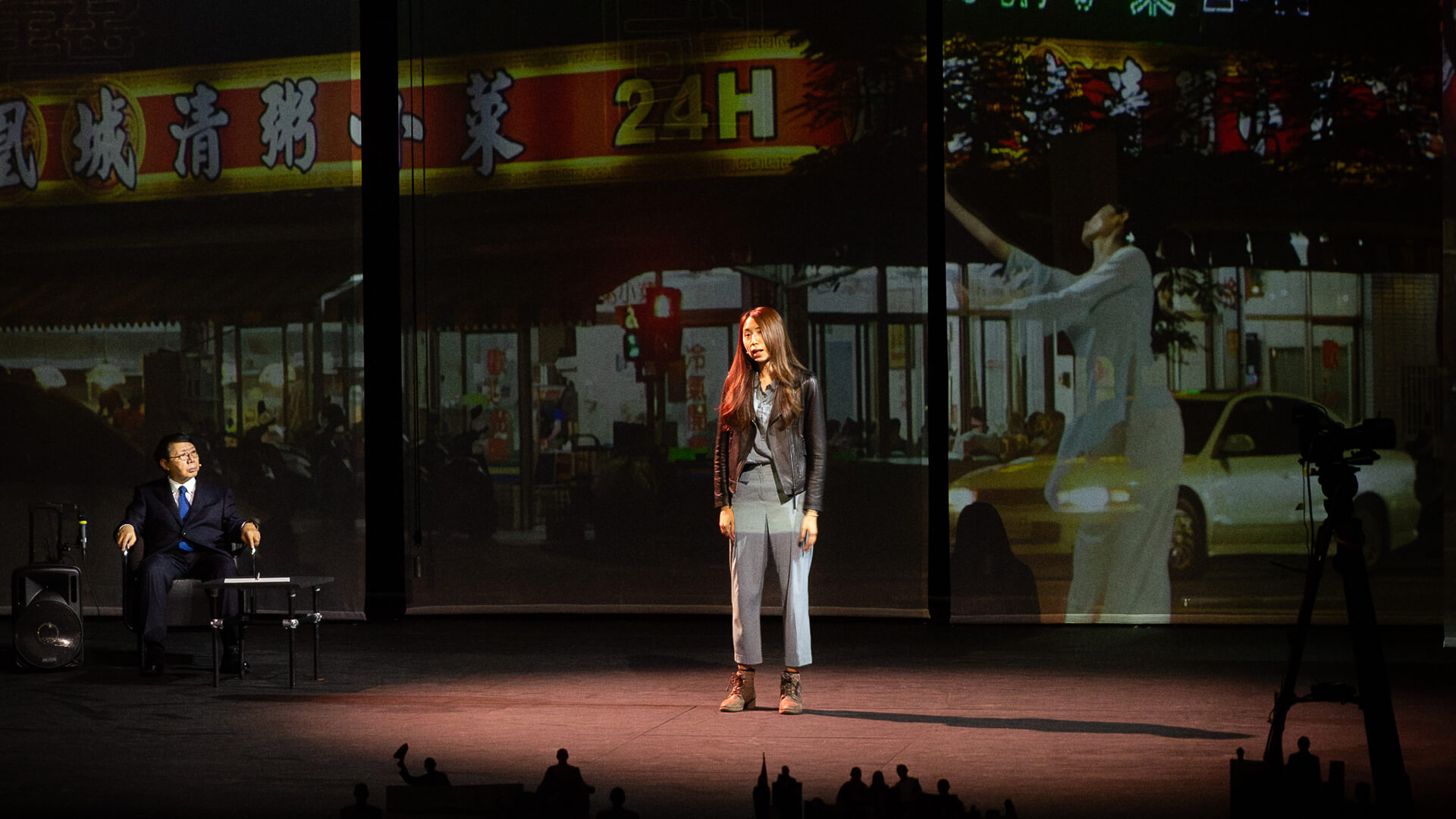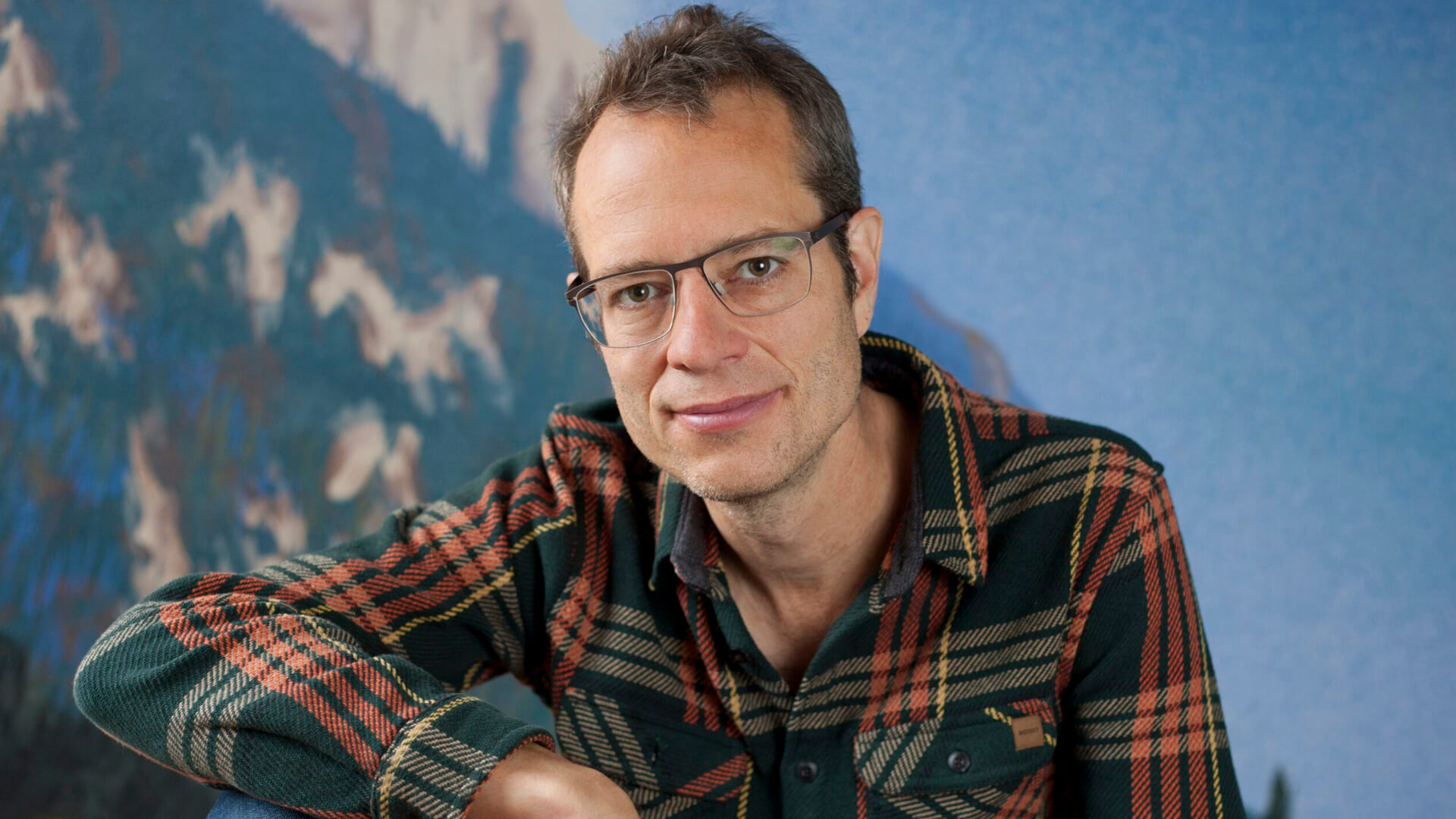About the show
During an artistic residency in Taipei, Stefan Kaegi met with numerous artists, industrial and diplomatic figures to paint a portrait of Taiwan, a unique territory that has lost almost all its official diplomatic representation. Through the stories of a digital activist, a former diplomat and a musician and heir to a bubble tea company, different views are given on the situation in Taiwan through models, simulations and video projections. Together, they create the dream of a fleeting embassy, where theatrical fiction is interwoven with the cultural and political history of this unknown region, acting as a mirror of our European democracies.
He also talks of a stage representation, proposing a series of reflections on theatrical art and the complex theme of perspective.
Director’s Note
The island of Taiwan regularly endures earthquakes and volcanic eruptions. In fact, it is part of the Pacific Fire Ring, a seismic zone that is particularly active on the edge of the Pacific. Not far from Taipei, the Philippines Sea plate is moving northwest at an average of 7 cm a year, into the Eurasian Plate, which contains mainland China. This geological description seems like a metaphor of a political situation marked by friction between the main power blocks and periodic eruptions. A precarious situation, but also a status quo that most of the population feels comfortable with.
This is not a country.
In 1945, Taiwan became a founding member of the United Nations and even a full member of the Security Council as the “Republic of China”. But in 1971, Nixon restored harmonic relations between the United States and mainland China, and Taiwan had to leave the UN. Ever since, Taiwan has fought for diplomatic recognition. Taiwan is excluded from international organisations like the WHO and UNESCO; Only fourteen of its diplomatic missions are recognised as embassies; Taiwanese athletes compete under the flag of “Chinese Taipei”. Not only since the war in Ukraine, China has made it clear time and again on the international stage that, in its opinion, Taiwan is not an independent country and that under no circumstances should it be regarded as such, and not even shown as one on a map. Although Taiwan has many international friends and trade partners, no one can afford to make an enemy of China, the second largest economy in the world. As a result, Taiwan is only the most visible part of a global dilemma.
Diplomacy 2.0?
The “Sunflower Movement” was a student protest in the spring of 2014 in Taiwan against a controversial agreement that would have allowed China to, among other things, take over part of the free press in Taiwan. A whole generation was politicised. New forms of participatory democracy and digital transparency were developed. The movement gained support nationally, but ended after the pro-China government made concessions, which caused it to lose its majority in the next elections. The search for new forms of participation and transparency continued, turning Taiwan into one of Asia’s most advanced democracies, an example of how “even the Chinese can do democracy”, as recently expressed by an expert in semiconductors. At the same time, Taiwan developed new forms of foreign policy that allow it to build international relations under the radar of official diplomacy.
What if theatre were to stage the temporary and nomadic representation of this territory that, although it could not officially exist as a nation, would exist on the stage in each show?
Stefan Kaegi,



